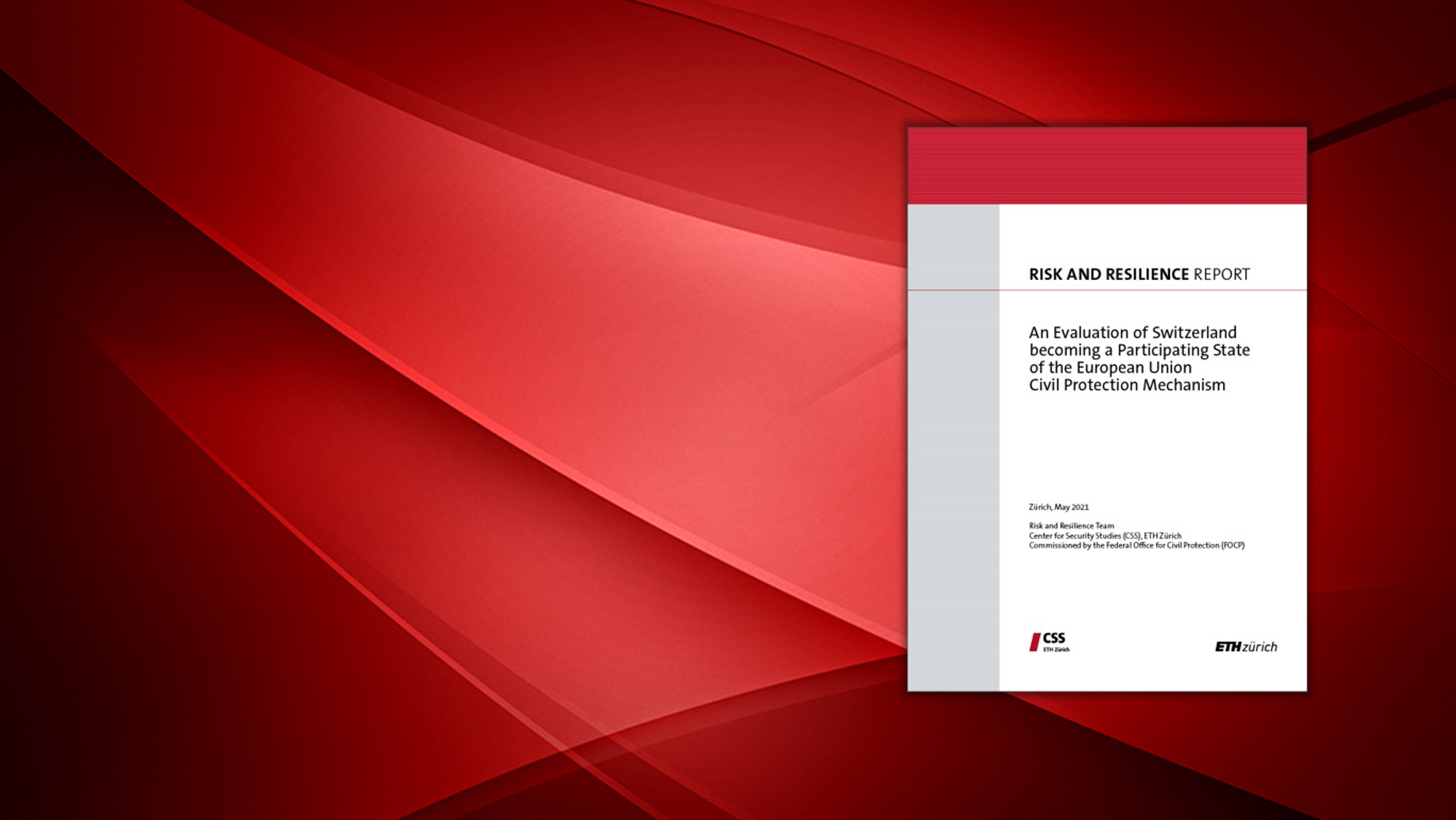An Evaluation of Switzerland becoming a Participating State of the European Union Civil Protection Mechanism
Disasters know no political and geographical borders. International assistance can therefore play a crucial role in saving lives, livelihoods, and assets in disasters. This new CSS Risk and Resilience Report by Christine Eriksen, Andrin Hauri, Jan Thiel, and Benjamin Scharte provides an independent evaluation of the benefits, costs, opportunities, and risks for Switzerland in becoming a Participating State of the UCPM.

Extreme events – be they natural, social, or technical, often have transboundary effects and may overwhelm national response capacities. International assistance can therefore play a crucial role in saving lives, livelihoods, and assets in disasters. Tapping into transnational expertise and lessons learnt can also be key to improving national preparedness and resilience levels in the face of current and emerging hazards. In 2001, the EU created the Union Civil Protection Mechanism (UCPM) as part of the Directorate-General for European Civil Protection and Humanitarian Aid Operations, with the aim of strengthening cross-border collaboration in disaster preparedness, risk assessment, and emergency response in Europe and beyond. Participation in the UCPM is also possible for non-EU countries, who pay an annual fee in return for full access to its services. To date, six countries have become Participating States of the UCPM (Iceland, Montenegro, North Macedonia, Norway, Serbia, and Turkey). This report provides an independent evaluation of the benefits, costs, opportunities, and risks for Switzerland in becoming a Participating State of the UCPM.